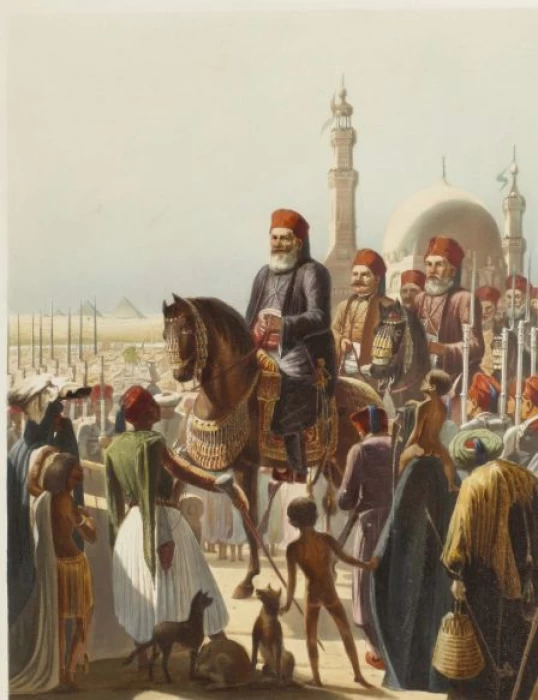
Egypt under the rule of foreigners
Egypt under the rule of foreigners
The Hyksos entered Egypt and settled in the Delta. They are known in historical sources as the Hyksos, a corruption of the ancient Egyptian name “Hakaw Khasut”, meaning the rulers of foreign countries. It seems that they were not a single people but several different peoples or tribes, and the ancient Egyptians called them “Amu” meaning Asian nomads, and sometimes the ancient Egyptians increased their description by saying “Amu Har Joshua” meaning the nomads who live on the sand.
One of the most famous Hyksos kings was a king named Javan, who bore the title Haq Khasut, meaning the ruler of foreign lands, and whose relics were spread in Egypt. The country of Kush separated from Egypt during the Hyksos era, with whom they established strong alliances, trade and diplomatic relations in order to spite Egypt and the Egyptians.
Alexander Macedonian
Alexander of Macedon became king in 336 BC after his father, King Philip, was assassinated by his bodyguard named Pausanias. Alexander was crowned king and assumed the Macedonian throne when he was only 20 years old.
Alexander Macedonian arrived in Egypt in 332 BC and that was after he refused peace from Darius, and before he entered Egypt, he remained under siege for a fairly long time, and then he was able to enter Egypt, where the people welcomed him greatly and considered him loyal to them, and Alexander Macedonian in Egypt founded the city of Alexandria, which still bears his name to the present time.
Salah al-Din
Salah al-Din belongs to a Kurdish family, generous in origin and great in honor, and this family belongs to a Kurdish tribe that is considered one of the most honorable Kurds by descent and clan, and this clan is known as Al-Rawadiya, and it descends from the town of Doyen, located at the last border of Azerbaijan near the city of Tiflis in Armenia, and the Ayyubis are related to Ayyub bin Shadi, and Ibn al-Athir considers them the most honorable Kurds.
When Salah al-Din al-Ayyubi took over the ministry of Egypt on March 26, 1169 AD, when he was only thirty-two years old, he intended to convert the country to the Sunni school of thought and pray for the Abbasid caliph in the Friday sermon instead of the Fatimid caliph, and at the time the Fatimid caliph al-Adid was sick and near death, so Salah al-Din hid that he had overthrown his state and said “let him die in peace.”
He came to Egypt in 1799 as part of an Ottoman military contingent to work to drive the French out of Egypt, but the Ottoman forces were defeated in the wild battle of Abu Qir and returned to his country. In 1801, he returned to Egypt as part of Captain Hussein’s army that had arrived to assist the British in the expulsion of the French and gained much reputation among the Turks and Egyptians.
After the evacuation of the French campaign, he was promoted to the rank of sargishme (general), then nominated for the position of head of the general command and commander of the palace guard to the governor-general. On July 9, 1805, the Ottoman Sultan agreed to the scientists' request and appointed Muhammad Ali as governor of Egypt and dismissed Khorshid Pasha.














